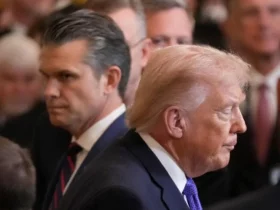Interview to Turkish TV channel Ulusal Kanal
Interview to Turkish TV channel Ulusal Kanal
UWI author and political scientist Onur Sinan Güzaltan shared his assessment of the Russia–Ukraine negotiations held in Istanbul with Türkiye’s Ulusal Kanal.
How would you describe Russia’s mindset and mood heading into the talks?
Just before the talks, Ukraine had launched a wide-ranging attack on Russia. Not only were military targets struck in various regions, but civilians were also targeted in two separate locations. That could have a jarring impact on the course of the war. In particular, the attacks on trains carrying civilians stirred up a public anger in Russia. There was a lot of speculation about whether the negotiations would take place at all. Still, both delegations eventually sat down at the table in Istanbul.
When we look at the outcome, all these delegations came from Russia, Ukraine, and Turkish and American officials were also present, yet the meeting lasted just one hour and three minutes. Historically, warring sides have met many times during conflicts. We shouldn’t overstate the importance of this meeting. I don’t believe any final or meaningful result will emerge from these talks.
So, do you think this war will drag on for years?
To answer that, we need to go back to the root cause of the war. The war in Ukraine was provoked in order to break ties between Russia and Europe. Those who wanted that, to a certain extent, achieved their goal. For the war to truly end, one of the powers backing either Russia or Ukraine would need to be forced to back down. Ukraine is currently supported by certain European governments, primarily the UK, France, and Germany, and influential financial circles in those countries.
Another possibility is a change of government in Ukraine. If there were a shift in leadership, if Zelenskyy or his inner circle were replaced by a more reasonable political force, then perhaps we could see a meaningful outcome. But under the current conditions, what I observe is that these talks are essentially being used to buy time.
How would you assess the US’s position on these negotiations?
Trump couldn’t fully implement the strategy he had in mind at the start of his second term. You might recall that he promised to resolve the Ukraine issue within two weeks. But it soon became clear that things were far more complex than he had anticipated. Yes, they signed an agreement with Ukraine, but the US either can’t get its way with the Zelenskyy government, or in some cases, chooses not to.
My guess is that there’s also some confusion on the Russian side, because while the Trump administration seems to be extending hand to Russia (there was, for instance, a talk between US Secretary of State Rubio and his Russian counterpart Lavrov, and Rubio offered condolences for the victims of the train sabotage attacks), but at the same time, there are still threats and hostile moves against Russia. From what we can tell, the US somehow continues to support Ukraine. There happened a public dispute between Trump and Zelenskyy at the White House, but still the relationship between the US and the current Ukrainian administration is continuing along different tracks. Meanwhile, a very comprehensive agreement has been signed between the UK and the US. Yet we know the UK is led by a government that strongly advocates aggressive policies against Russia. So, at this point, we’re seeing the US rebuild ties with certain European countries.
Finally, I would like to ask about the situation on the ground. What kind of impact might these negotiations have on the course of the conflict?
Russia gained vast territories in this war and also integrated them into its constitution as Russian land. Moscow wants these to be recognized internationally. They won’t give up this claim. These are highly strategic areas: regions known as grain hubs and rich in underground resources.
From the Ukrainian perspective, it would be quite difficult for Zelenskyy and his administration to sign any agreement that recognizes these territories as Russian. After all, the future of him and the governments in Europe backing is tied to the continuation of this war. That’s why they keep dragging the process out with stalling tactics. This is the core of the problem. In my view, as long as the current actors and parties remain in place, a lasting peace isn’t realistic. Even if a ceasefire agreement were signed tomorrow, it would only be a matter of time before conflict flares up again somewhere else. What we have is irreconcilable contradictions between the two sides.

















Leave a Reply